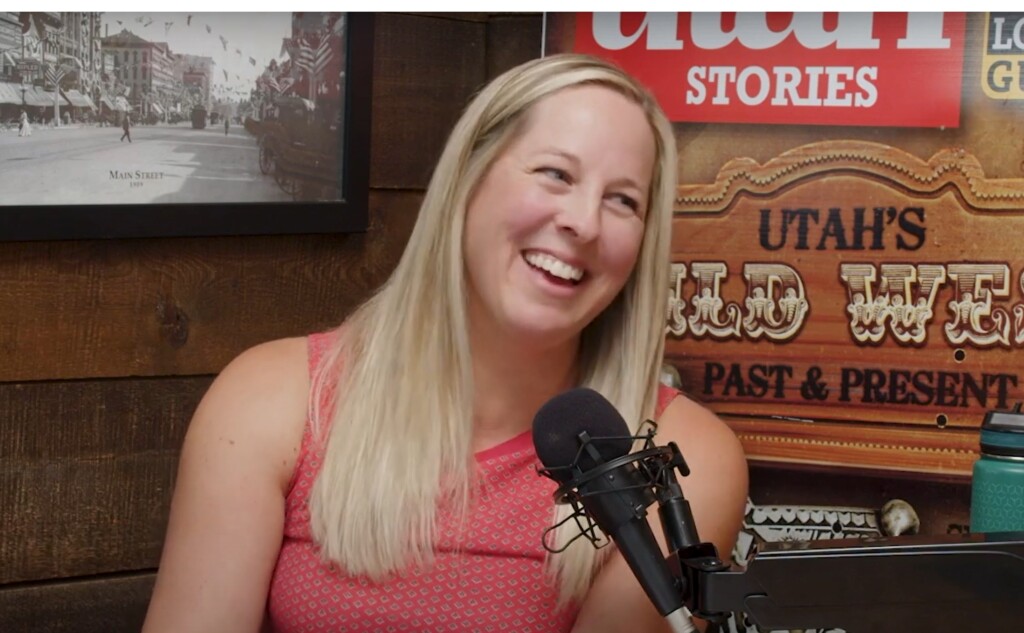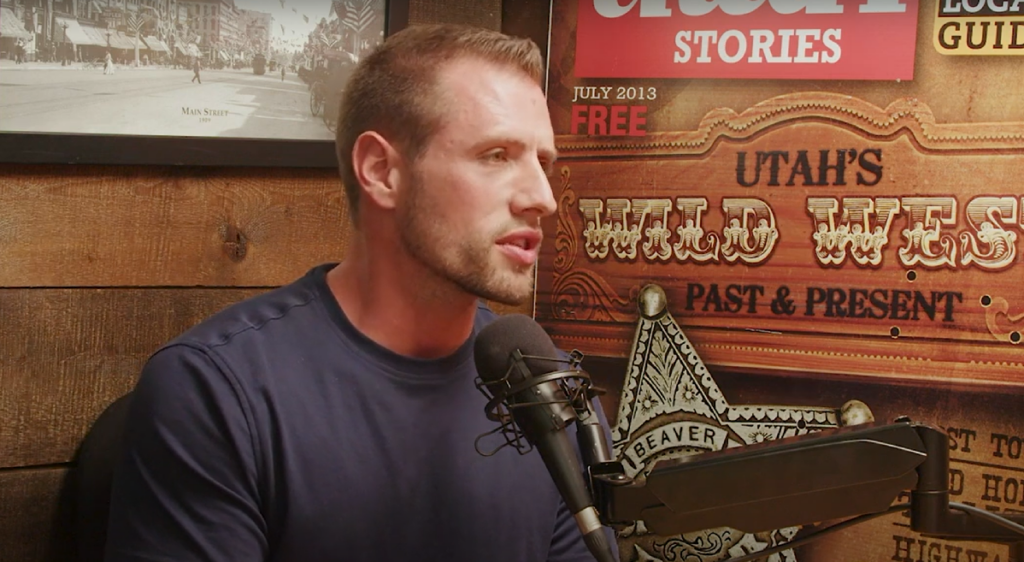Mainstream media is a dinosaur in a world of electric cars and AI robots. What once delivered the facts like a well-oiled machine is now sputtering, spouting opinions disguised as news. This erosion of trust is why more people than ever are abandoning traditional media for podcasts and independent creators. But what does this shift mean for our democracy? On a recent episode of Utah Stories, I spoke with Carrie Hill, founder of Chill Consulting Agency, about the state of our media and whether it’s too late to restore trust in the institutions that once held America together.
Hill has been working with journalists for years, helping them connect with businesses and PR campaigns. Her insight into how the media works—and how it’s failing—isn’t just theoretical. It’s firsthand.
Why Is Mainstream Media Losing Trust?
There was a time when you could trust what you saw on the evening news. “You go back in the old days of like Tom Brokaw and… men that walk on the moon—it’s reported. They walked on the moon, like everybody was in alignment that that happened,” Hill told me. Back then, news wasn’t just another form of entertainment; it was about truth. It carried a certain gravitas.
Today? Not so much. “We have no idea what is actually fact versus fiction anymore,” Hill said, summing up the state of a fragmented media landscape. Now, we’ve got CNN and MSNBC spouting left-wing narratives, while Fox News fires back with a right-wing spin. What’s missing from all of this? Facts. Neutrality. Journalism.
Instead of reporting the news, the media panders to its tribes. People huddle in their chosen bubbles, consuming content that reinforces their existing beliefs. “We’re just gonna talk past each other and be on our own little networks with our own little tribes,” Hill said. The result? A polarized society that struggles to find common ground.
Podcasts vs Mainstream Media: Who Do We Trust Now?
While mainstream media stumbles, podcasters and independent creators are thriving. Platforms like YouTube and Spotify are where real conversations are happening. Why? Because these creators aren’t beholden to big advertisers with agendas. “Mainstream media is protecting their advertisers,” Hill said, citing Big Pharma as a prime example. The biggest ad spender on CNN? Pharmaceuticals. That kind of financial relationship doesn’t just look bad—it is bad. It means certain topics are off-limits because they threaten the bottom line.
In contrast, independent podcasters are free to tackle tough topics without fear of losing funding. “Podcasters are about to be blown up in a really big way,” Hill predicted. But that growth comes with a catch. “They have to say no to big advertisers that tell them what they have to do. It’s the only way they can stay credible.”
And it’s not just Joe Rogan or other big names dominating this space. Hill pointed out that local, micro-podcasts are having these same kinds of important conversations. “You could probably throw a rock and find four podcasts just within this 20-mile radius that are having these kinds of conversations on YouTube or on Instagram or TikTok.”
Political Polarization in America: Is the Two-Party System Failing?
The problems in the media aren’t happening in a vacuum—they mirror the growing divide in American politics. Hill considers herself a “political nomad,” frustrated by a two-party system that feels more like a straitjacket than a choice. “I don’t fit in a political party per se. I call myself a liberal libertarian because I understand why people in cities need more government… but people in rural areas need less government,” she said.
This divide—between blue cities and red rural America—was on full display in the last election. “We are going to tell you what the party is. You don’t get to tell us anymore,” Hill said, describing a growing sentiment among voters tired of establishment politics. For Hill, the Republican establishment—the “never-Trumpers” like Dick Cheney and Liz Cheney—represents a relic of the past. “That conservative party is dead,” she said bluntly.
But don’t expect the two-party system to crumble anytime soon. If anything, Hill sees moderates within both parties gaining influence. The question is whether they’ll have enough pull to reshape their parties in a way that better reflects the will of the people.
Independent Journalism Platforms: A Path Forward?
Hill offered an idea that might help us navigate these divisions: forget balance; aim for harmony. “Republicans are not all the same. Democrats are not all the same,” she said, emphasizing that diversity within parties can be a strength. Harmony, she explained, isn’t about perfect balance—it’s about different voices working together toward a shared goal.
This idea could apply just as well to the media. Instead of every outlet pushing its own agenda, imagine a media ecosystem that values collaboration over competition. It’s a long shot, but one worth considering.
Raising Resilient Kids in a Polarized Media World
As a parent, I found Hill’s advice about raising kids in this media-saturated world particularly compelling. “Let’s re-acclimate ourselves with our country, with our Constitution, with our democratic process, with our ability to access real information,” she said. The onus is on parents to teach kids how to separate fact from fiction and to seek out credible sources.
Hill believes this is part of a larger conversation about resilience. Her upcoming podcast, Refined Resilience, launching in January 2025, will focus on how resilience is a journey, not a destination. “Even the top people in the world who seem the most resilient, it’s an ongoing journey for them too,” she said.
Her point is well-taken. Whether we’re talking about politics, media, or personal growth, the ability to adapt and persevere is what will ultimately get us through these uncertain times.
A Turning Point for Media and Society
The media landscape is changing fast. Mainstream outlets are struggling to maintain relevance, while alternative platforms are stepping in to fill the void. At the same time, political polarization continues to widen the gap between Americans. But amid these challenges, there’s hope. Whether it’s fostering harmony, educating the next generation, or embracing resilience, there are ways to move forward.
The question is whether we’ll rise to the occasion—or retreat further into our tribes.






